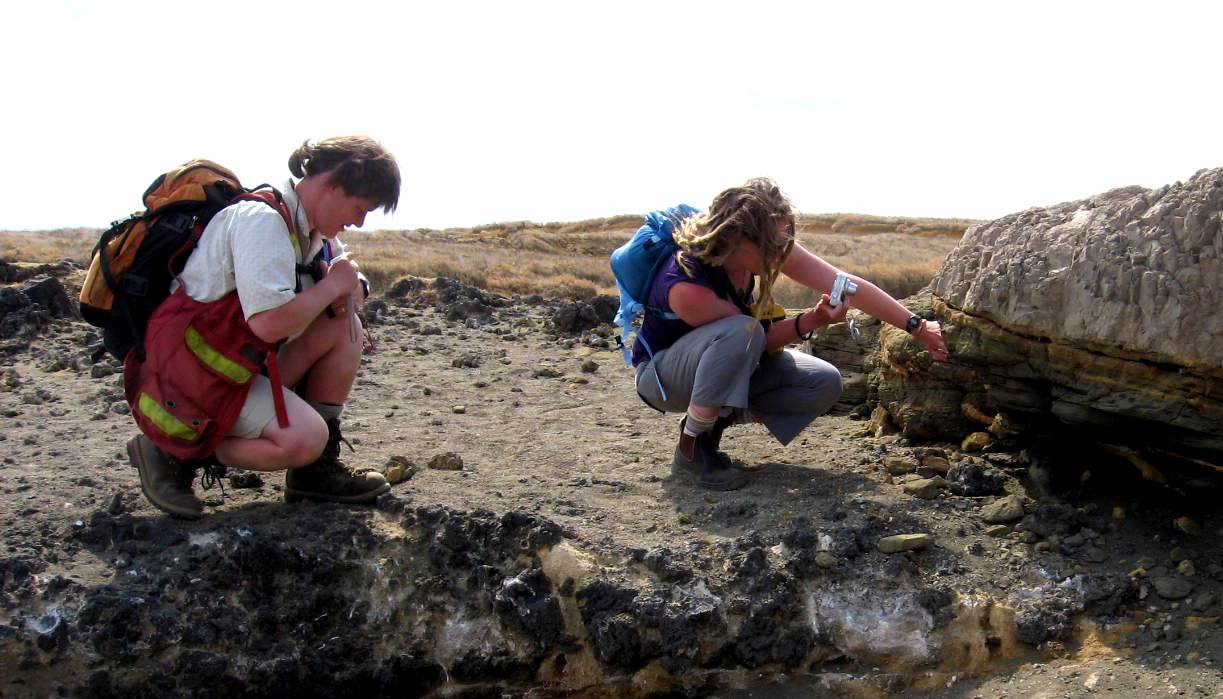
Geology, the study of the Earth's structure, processes, and history, is a fascinating field that provides valuable insights into the planet's evolution. Geologists, the experts in this domain, play a crucial role in understanding natural phenomena such as earthquakes, volcanic eruptions, and the formation of landscapes. Their work extends beyond the surface, delving into the composition and history of the Earth's layers.
In this article, we'll delve into 10 intriguing facts about geologists, shedding light on their diverse roles, contributions, and the captivating world of geological exploration. From their pioneering discoveries to their adventurous fieldwork, geologists are integral to our understanding of the Earth's past, present, and future. So, let's embark on a journey to uncover the remarkable facets of geology and gain a deeper appreciation for the professionals who unravel the mysteries of the Earth.
Key Takeaways:
- Geologists are like Earth detectives, using rocks and landforms to uncover the planet’s history and contribute to environmental conservation efforts.
- Geologists play a crucial role in disaster mitigation, exploration of other planets, and resource exploration, making invaluable contributions to our understanding of the Earth.
Geologists are Earth detectives
Geologists are like detectives who unravel the mysteries of the Earth. Their work involves studying the composition, structure, and history of the planet. They play a crucial role in understanding natural processes such as earthquakes, volcanic eruptions, and the formation of valuable resources like oil and minerals.
Geologists are skilled in interpreting rocks and landforms
Geologists possess the remarkable ability to read the Earth's history through rocks and landforms. They can decipher the story of the Earth's evolution by analyzing the layers of sedimentary rocks and the shapes of mountains, valleys, and canyons. Their expertise helps us comprehend the dynamic changes that have shaped our planet over millions of years.
Geologists use advanced technology for exploration
Geologists utilize cutting-edge technology such as satellites, drones, and 3D imaging to explore and map the Earth's surface. This enables them to identify potential sites for valuable resources and study environmental changes with a high level of precision.
Geologists play a vital role in environmental conservation
Geologists contribute significantly to environmental conservation efforts. By studying the Earth's processes, they can assess the impact of human activities on the environment and develop strategies to manage natural resources sustainably.
Geologists work in diverse environments
Geologists often work in diverse and sometimes extreme environments, including deserts, mountains, and underwater. Their willingness to venture into these challenging terrains demonstrates their dedication to understanding the Earth's complexities.
Geologists are involved in disaster mitigation
Geologists play a crucial role in mitigating natural disasters such as landslides, floods, and volcanic eruptions. Their expertise in understanding the Earth's processes helps in predicting and preparing for potential hazards, ultimately saving lives and minimizing damage.
Geologists contribute to the exploration of other planets
Geologists are not limited to studying Earth; they also contribute to the exploration of other planets. By analyzing data from space missions, they provide valuable insights into the geological features of celestial bodies, expanding our knowledge of the universe.
Geologists have diverse specializations
Geology encompasses various specializations such as hydrogeology, petroleum geology, environmental geology, and planetary geology. Each specialization plays a unique role in advancing our understanding of the Earth and its resources.
Geologists are passionate about Earth's history
Geologists are passionate about unraveling the Earth's history and understanding the forces that have shaped our planet. Their enthusiasm drives them to explore new frontiers and make groundbreaking discoveries that benefit society as a whole.
Geologists are instrumental in resource exploration and extraction
Geologists are integral to the discovery and extraction of valuable resources such as oil, natural gas, and minerals. Their expertise in identifying potential reserves and devising extraction methods is essential for meeting the world's energy and material needs.
Geologists are indispensable in unraveling the Earth's mysteries and addressing critical environmental and resource challenges. Their dedication to understanding the planet's history and processes not only expands our knowledge but also contributes to the sustainable management of natural resources. As Earth detectives, geologists continue to make invaluable contributions to our understanding of the world we inhabit.
Conclusion
In conclusion, geologists play a crucial role in understanding the Earth's processes and history. Their work spans various fields, from studying rocks and minerals to analyzing natural disasters. Geologists contribute to important endeavors such as resource exploration, environmental protection, and hazard mitigation. Their passion for unraveling the mysteries of the Earth fuels groundbreaking discoveries and advancements in scientific knowledge. As we delve deeper into the complexities of our planet, the expertise of geologists becomes increasingly invaluable. Through their dedication and expertise, geologists continue to inspire awe and deepen our understanding of the world beneath our feet.
FAQs
What are the main responsibilities of a geologist?Geologists are responsible for studying the Earth's structure, composition, and processes. They analyze rocks, minerals, and fossils to understand geological phenomena and contribute to various fields such as environmental protection, resource exploration, and hazard mitigation.
How does geology impact everyday life?Geology has a significant impact on everyday life, influencing aspects such as the availability of natural resources, the understanding and mitigation of natural hazards, and the preservation of the environment. Geologists' work plays a crucial role in shaping policies related to land use, resource management, and environmental conservation.
Geologists' passion for Earth's history is truly contagious! Their diverse specializations and roles in resource exploration, environmental conservation, and disaster mitigation make them real-life superheroes. If you're curious to learn more about these rock stars of science, check out some extraordinary facts about geologists that will blow your mind. Mark your calendars for Geologists Day on April 7th and join the celebration! And while you're at it, don't miss out on surprising facts about sedimentary rock that will make you see the world beneath your feet in a whole new light.
Was this page helpful?
Our commitment to delivering trustworthy and engaging content is at the heart of what we do. Each fact on our site is contributed by real users like you, bringing a wealth of diverse insights and information. To ensure the highest standards of accuracy and reliability, our dedicated editors meticulously review each submission. This process guarantees that the facts we share are not only fascinating but also credible. Trust in our commitment to quality and authenticity as you explore and learn with us.


